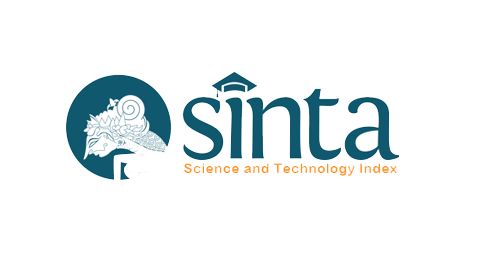Health Education To Reduce Negative Stigma And Increase Willingness To Screen For Tuberculosis
DOI:
https://doi.org/10.35568/healthcare.v6i1.4331Keywords:
Health Education , Tuberculosis, ScreeningAbstract
Tuberculosis (TB) is still a health problem in the world because Tuberculosis (TB) is one of the 10 highest causes of death worldwide and the main cause of death from infectious agents. The stigma circulating in society influences the desire of patients not to undergo treatment or comply with TB treatment and people who have symptoms become afraid to check themselves and undergo screening because they are reluctant to be viewed negatively by society. This case study aims to determine the effect of health education as an effort to reduce negative stigma and increase willingness to screen. This research uses a case study method consisting of a needs assessment and intervention provided by a health education and TB screening program. Management data showed that 37 residents of Ciwalen Village who were studied had been diagnosed with pulmonary tuberculosis. Of the 37 people who had been diagnosed with pulmonary TB, only 34 people regularly took medication. The results of health education were 13 residents from taking part in screening activities before the health education activity and after the health education activity was held the number increased by 28 people. It can be concluded that the stigma of TB in society has an impact on the TB control process. Health education activities carried out as an effort to reduce the stigma of TB can increase the willingness of residents to undergo TB screening, especially for residents who are at high risk or residents who have symptoms.
Downloads
References
Andriani, D., & Sukardin, S. (2020). Pengetahuan dan Sikap Keluarga Dengan Pencegahan Penularan Penyakit Tuberculosis (TBC) Di Wilayah Kerja Puskesmas Penana’e Kota Bima’,. Jurnal Ilmiah Ilmu Keperawatan Indonesia, 10(03),. https://doi.org/10.33221/jiiki.v10i 03.589.
Astuti, V. W., Nursasi, A. Y., & &Sukihananto. (2019). Edukasi Kesehatan Terstruktur dan Stigma Masyarakat pada Klien TB Paru. Jurnal Kesehatan Poltekkes Palembang, 14(2), 85–90.
BPS, B. P. S. (2023). Provinsi Jawa Barat Dalam Angka 2023. 2023.
Daniel G. Datiko. (2020). Stigma matters in ending tuberculosis: Nationwide survey of stigma in Ethiopia. Public Health, 2–10.
Efendi , F., & M. (2019). KEPERAWATAN KESEHATAN KOMUNITAS. Jakarta: Salemba Medika.
Kemenkes RI. (2016). Profil Kesehatan Indonesia.
Kemenkes RI. (2023). Laporan Program Penanggulangan Tuberkulosis Tahun 2022.
Kementerian Kesehatan RI. (2022). Temukan obati Sampai Sembuh.
Kigozi, N. G., Heunis, J. C., Engelbrecht, M. C., Janse van Rensburg, A. P., Van, &, & Rensburg, H. C. J. D. (2017). Tuberculosis knowledge, attitudes and practices of patients at primary health care facilities in a South African metropolitan: research towards improved health education. BMC Public Health, 17(1), 795. Retrieved from https://doi.org/10.1186/s12889-017-4825-3.%0D
Notoatmodjo, S. (2014). Promosi Kesehatan dan Perilaku Kesehatan. Jakarta: Rineka Cipta.
Pagaoa, M. A., Royce, R. A., Chen, M. P., Golub, J. E., Davidow, A. L., & Hirsch-Moverman, Y. (2015). Risk factors for transmission of tuberculosis among United States-born African Americans and Whites. The International Journal of Tuberculosis and Lung Disease, 19(12), 1485-1492.
Priyoto. (2014). Teori Sikap Dan Perilaku Dalam Kesehatan,. Yogyakarta: Nuha Medika.
Downloads
Published
Issue
Section
License
Copyright (c) 2024 The Author(s)

This work is licensed under a Creative Commons Attribution 4.0 International License.

















